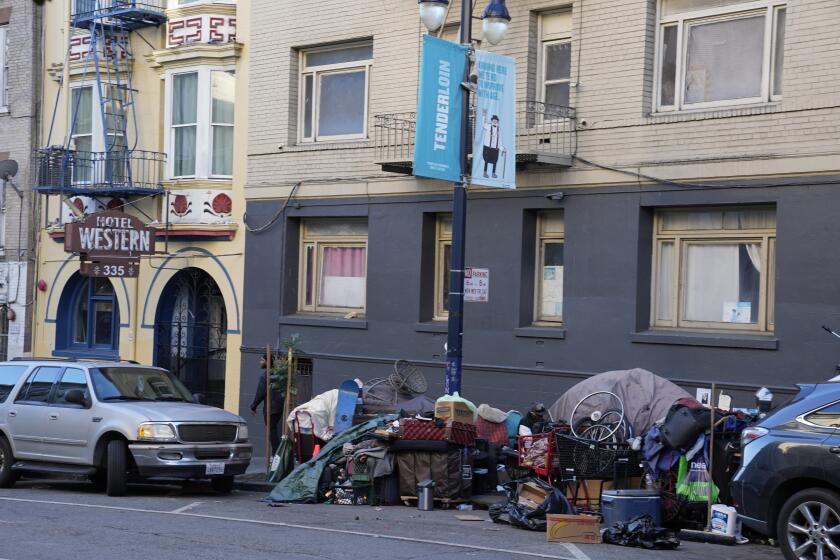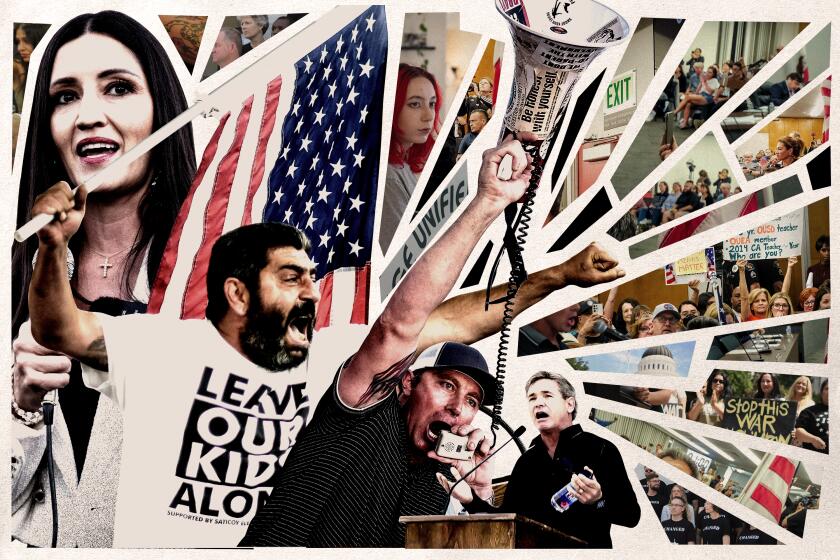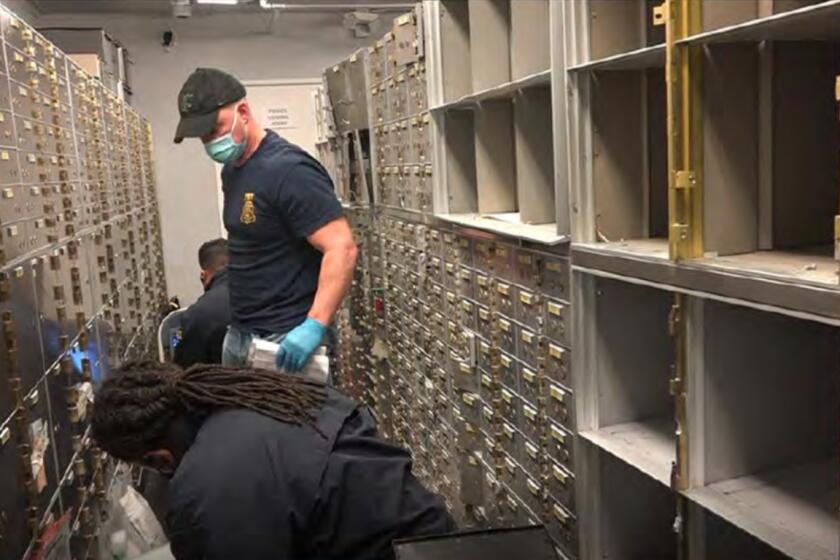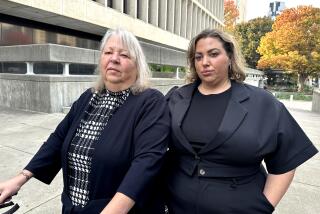U.S. News & World Report sues S.F. city attorney over hospital ranking subpoenas
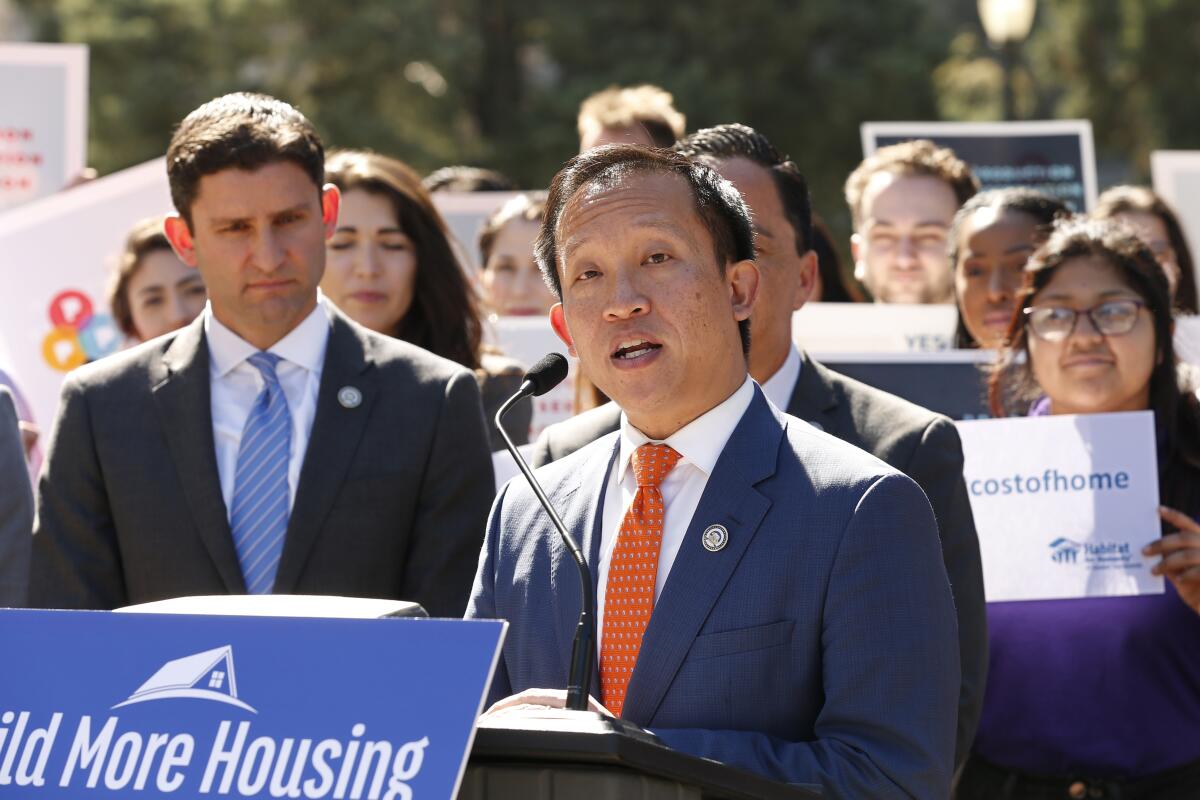
- Share via
A dispute between U.S. News & World Report and the San Francisco city attorney’s office over the media company’s well-known but increasingly scrutinized system for ranking hospitals and other healthcare institutions has in recent weeks turned into an all-out legal battle.
San Francisco City Atty. David Chiu issued two subpoenas to the media company earlier this month. The first demanded answers about the company’s process for ranking hospitals. The outlet also makes money from the healthcare facilities, including through its sale of “badges” that high-scoring institutions can and often do place on their websites and other branding materials.
The second subpoena demanded internal business records that might reveal more about U.S. News’ rankings process, and whether the financial relationships with hospitals are a factor.
On Tuesday, U.S. News responded by filing a federal lawsuit against Chiu, denouncing his subpoenas as a violation of the 1st Amendment and an attack on the free press. It asked the court to issue an injunction blocking the subpoenas and to order the city to compensate the company for its legal fees and other undetermined costs associated with the dispute.
The company argued Chiu’s inquiries are based solely on the fact that he disagrees with their rankings of the nation’s “Best Hospitals,” which it says are based on public methodology.
A federal court Tuesday rejected a Jewish family’s decades-long legal fight for a famous Pissarro painting that was taken from them by the Nazis at the dawn of World War II and is currently at a museum in Spain.
Chiu’s demands amount to “viewpoint-based discrimination” against an established media company by a government official, it said, and violate California’s law shielding journalists’ unpublished work from government scrutiny.
“It is flatly unconstitutional for the City Attorney to harass U.S. News due to his differing views on these rankings; his mounting harassment must be put to a stop,” the company’s complaint argues.
Chiu, in a statement provided to The Times, vigorously disputed those claims.
“It’s ironic that U.S. News claims its speech has been chilled, when the purpose of the company’s lawsuit is to chill and impede a legitimate government investigation of potential unlawful business practices,” Chiu said.
“Despite U.S. News’ stated commitment to transparency, the company has spent months evading tough questions about its undisclosed financial links to the hospitals it ranks. This lawsuit is yet another baseless attempt to avoid these questions and a waste of judicial resources,” Chiu said. “U.S. News is not above the law, and its bullying litigation tactics will not deter us from standing up for patients and consumers.”
U.S. News’ and others’ major ranking systems have faced criticism in recent years, with institutions of higher education and prominent officials arguing they face pressure to focus on status and rankings-based criteria rather than general performance and serving the needs of their communities.
U.S. Education Secretary Miguel A. Cardona called college rankings “a joke” in August 2022, and a number of top law schools — including at UC Berkeley and Stanford, UCLA and UC Irvine — announced they would boycott U.S. News’ rankings that same year. A number of medical schools, including Stanford, Columbia and Harvard, made similar announcements last year.
A federal court order that restricts San Francisco’s ability to clear street encampments of homeless people who have no where else to go will continue to stand as a broader debate on the issue plays out nationally.
U.S. News has defended its process for ranking institutions as proven, trusted and robust, and its complaint calls its hospital rankings — which it has provided for more than three decades — “a valuable and reliable public resource for individuals and families making critical decisions about medical care for themselves and their loved ones.”
“Each member of the editorial team works full time on health rankings, including the hospital rankings,” the lawsuit states. “Editorial team members are not involved in sales of any products or services and revenue considerations do not impact the rankings in any way.”
The company’s lawsuit says tens of millions of people come to its website every month “seeking research and guidance,” and calls Chiu’s subpoenas a threat not just to the that guidance but also to “all media platforms and news organizations” in the country.
“The City Attorney is threatening invasive, sweeping, burdensome incursions against a news organization merely because he disagrees with an editorial viewpoint — specifically, U.S. News’ rankings and methodology,” the company’s lawsuit states. “The independence of editorial determinations — free from business considerations — is a bedrock principle of journalism, to which U.S. News proudly adheres.”
Conservatives and right-wing agitators are waging a well-coordinated, anti-LGBTQ+ culture war in local school districts across California.
Chiu first demanded answers about the company’s ranking process in a biting letter that his office sent to the company — and posted publicly to its own website — in June.
U.S. News “holds itself out as an expert on ranking hospitals,” the letter read, “but medical experts have recently raised concerns that [its] rankings suffer from poor and opaque methodology, mislead those using the rankings, and create perverse incentives for hospitals nationwide.”
Chiu also took to the social media platform X to personally comment on the letter and its demands for information from the company, writing that there were concerns about “questionable methodology, bias [and] undisclosed financial relationships with highly ranked hospitals.” The ranking system, he said, encourages hospitals to invest “in specialties that rack up the most points rather than in primary care or other worthy specialties.”
Chiu wrote that consumers relied on the rankings without understanding that the company has “financial relationships” with the institutions it ranks. He said the rankings “appear to be biased towards providing treatment for wealthy, white patients, to the detriment of poorer, sicker, or more diverse populations.”
Among other things, Chiu accused U.S. News of potentially violating California laws and federal guidelines that are in place for advertisers. The company responded with its own letter the following month, rejecting Chiu’s claims as “misplaced” and defending its rankings process.
Chiu has objected to the outlet calling its rankings “authoritative,” based on “world-class data and technology,” and helpful to families searching for the best healthcare. In its complaint, the company called those claims “subjective opinion,” and said they are “amply supported” by the facts and various third-party reviews of its work — and also not subject to legal challenge.
The FBI violated people’s constitutional rights when it opened and ‘inventoried’ safe-deposit boxes at a Beverly Hills vault, an appeals court ruled.
After the exchange of letters in the summer, the company said it believed the issue was resolved, until Chiu’s subpoenas arrived this month, forcing it to defend itself — and other media companies in the state — in court.
Jen Kwart, a spokeswoman for Chiu’s office, said in a statement to The Times that the office is “in no way dictating what U.S. News publishes or the endorsements it makes,” but is simply seeking more information about how it reaches those conclusions.
“U.S. News is trying to avoid answering difficult questions by obscuring the issues and making baseless claims that the company’s constitutional rights are threatened by the mere act of asking questions,” Kwart said.
Chiu is well within his authority to issue subpoenas to force the company to answer his questions, Kwart said, and is serving “the best interest of patients in California” by doing so.
More to Read
Sign up for Essential California
The most important California stories and recommendations in your inbox every morning.
You may occasionally receive promotional content from the Los Angeles Times.

